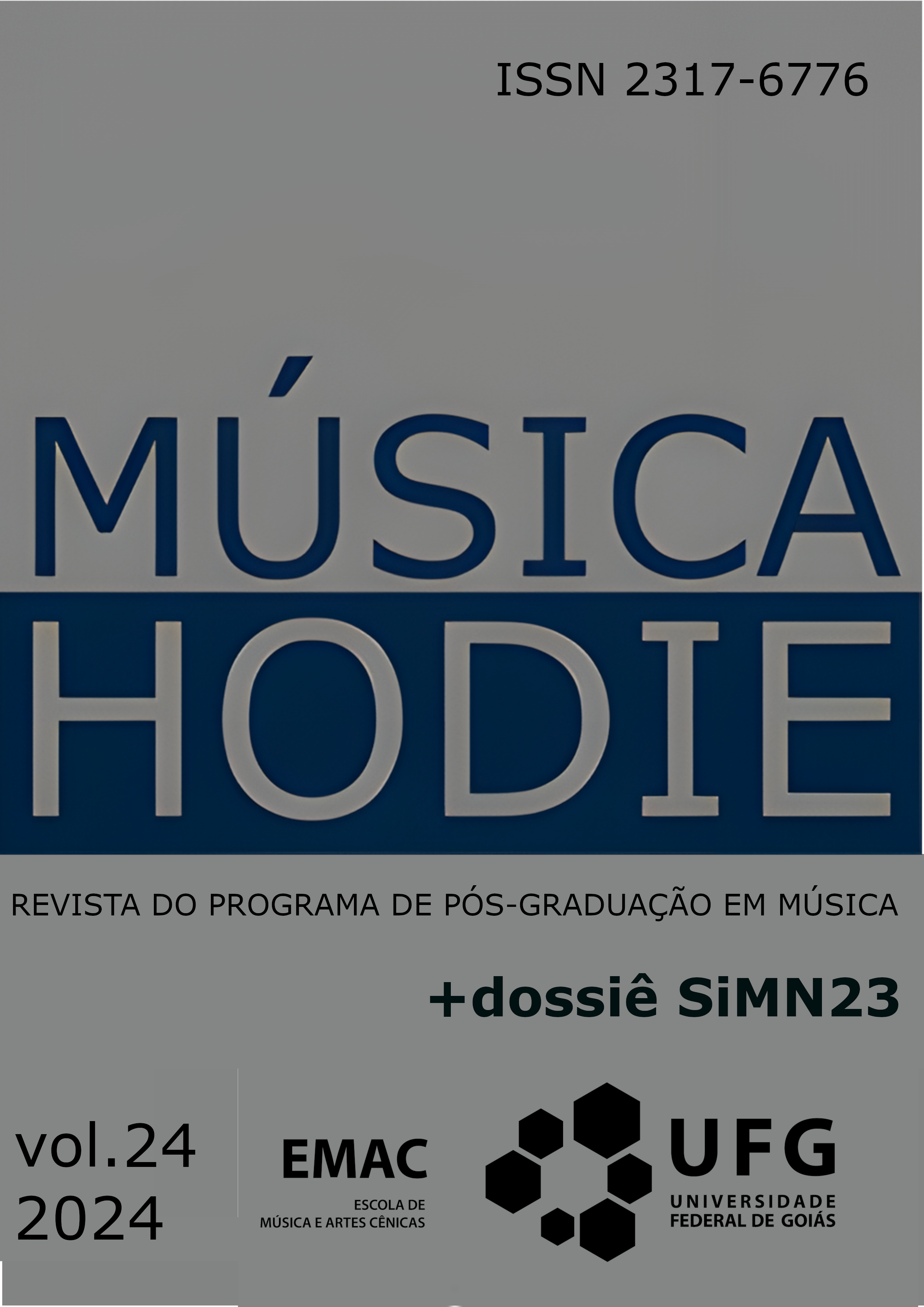Analysis of certain aspects of the Albanian musical folklore
DOI:
https://doi.org/10.5216/mh.v24.77208Palavras-chave:
Kosovo Highlanders, folk art, ethnic traditions, monody, costume ornamentationResumo
Abstract. The relevance of the key aspects of the musical culture of ethnic groups of Albania in the present period arises due to the intensification of globalisation processes and the resulting tendency towards cultural and everyday unification in the world. The research aims to reveal the peculiarities of the national musical creativity of the Kosovo highlanders. The analysis, comparison and synthesis methods of key folklore aspect research was used. The original texts of the songs (in the form of manuscript copies) and video recordings of choreographic samples of folk art were analysed. In the process of studying aspects of oral traditional musical (vocal; dance; theatre and games) art of inhabitants of one of the regions of Kosovo (Rugova), features of song creation; folk choreographic art; theatre performances and sports games; arts and crafts heritage were revealed. Key categories of each branch of the folklore fund of Kosovo highlanders were established. The features peculiar to the vocal music of Rugova were identified (monody (one-voice), as a texture fold and singing principle; the voiceless sound system (pentatonic), including elements of microchromatics (in glissando episodes); instrumentation (lahuta; çiftelia; kavall). The specificity of national costumes, which contribute to the convenience, comfort, and health protection of the autochthonous population in the conditions of difficult climate and landscape, as well as the originality and originality of their design, was also paid attention to. The scientific novelty of the research consists in its concept, according to which the oral traditional creativity of the Rugova inhabitants acts as a voluminous integral system, including several key components. The research's practical significance is determined by the possibility of using its ideas in the study of the folklore of other ethnic groups, which is still unexplored. The results of the study can be useful for musicologists, cultural studies, folklorists, historians, as well as ethnographers.
Downloads
Downloads
Publicado
Versões
- 2024-10-12 (2)
- 2024-10-07 (1)















